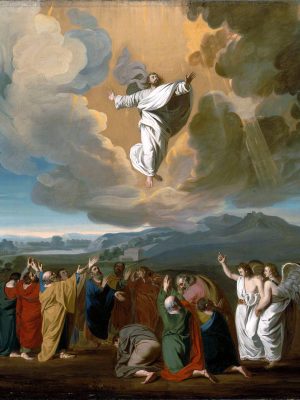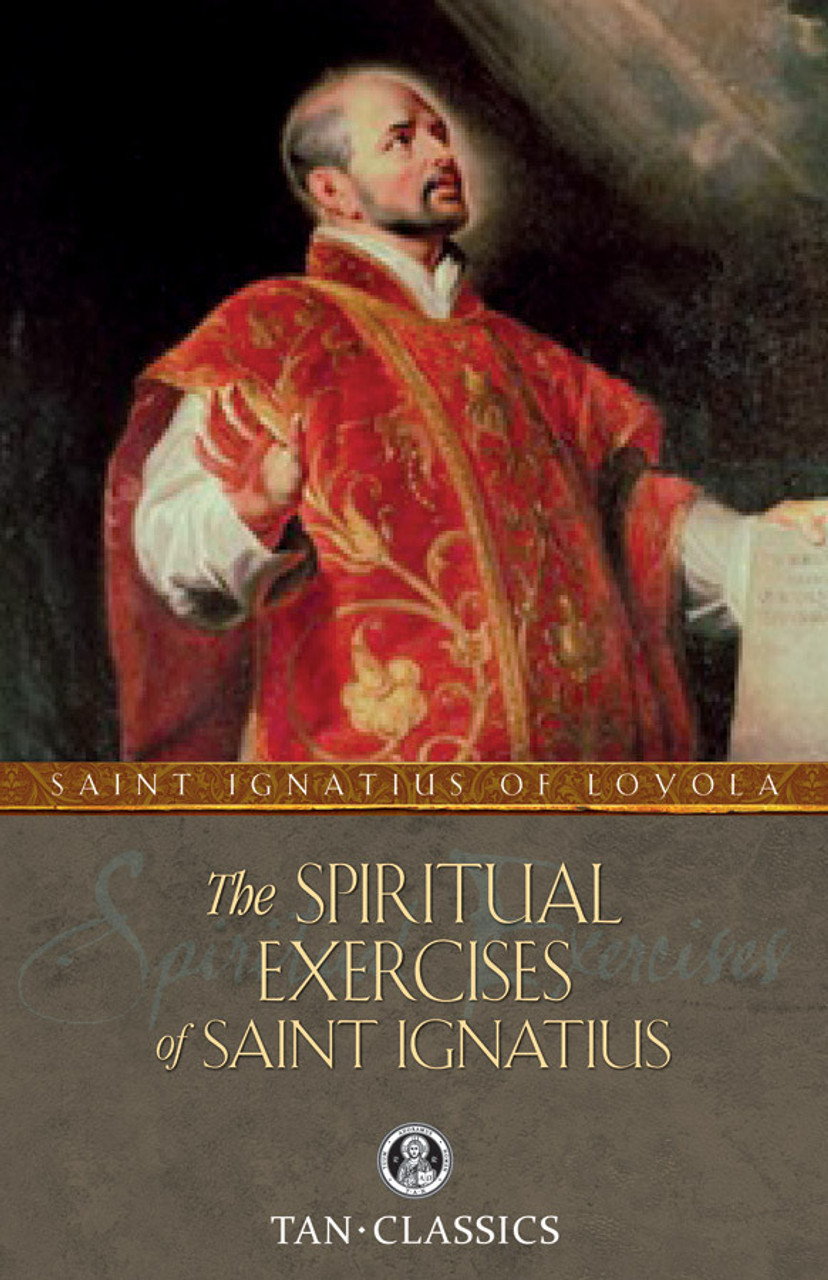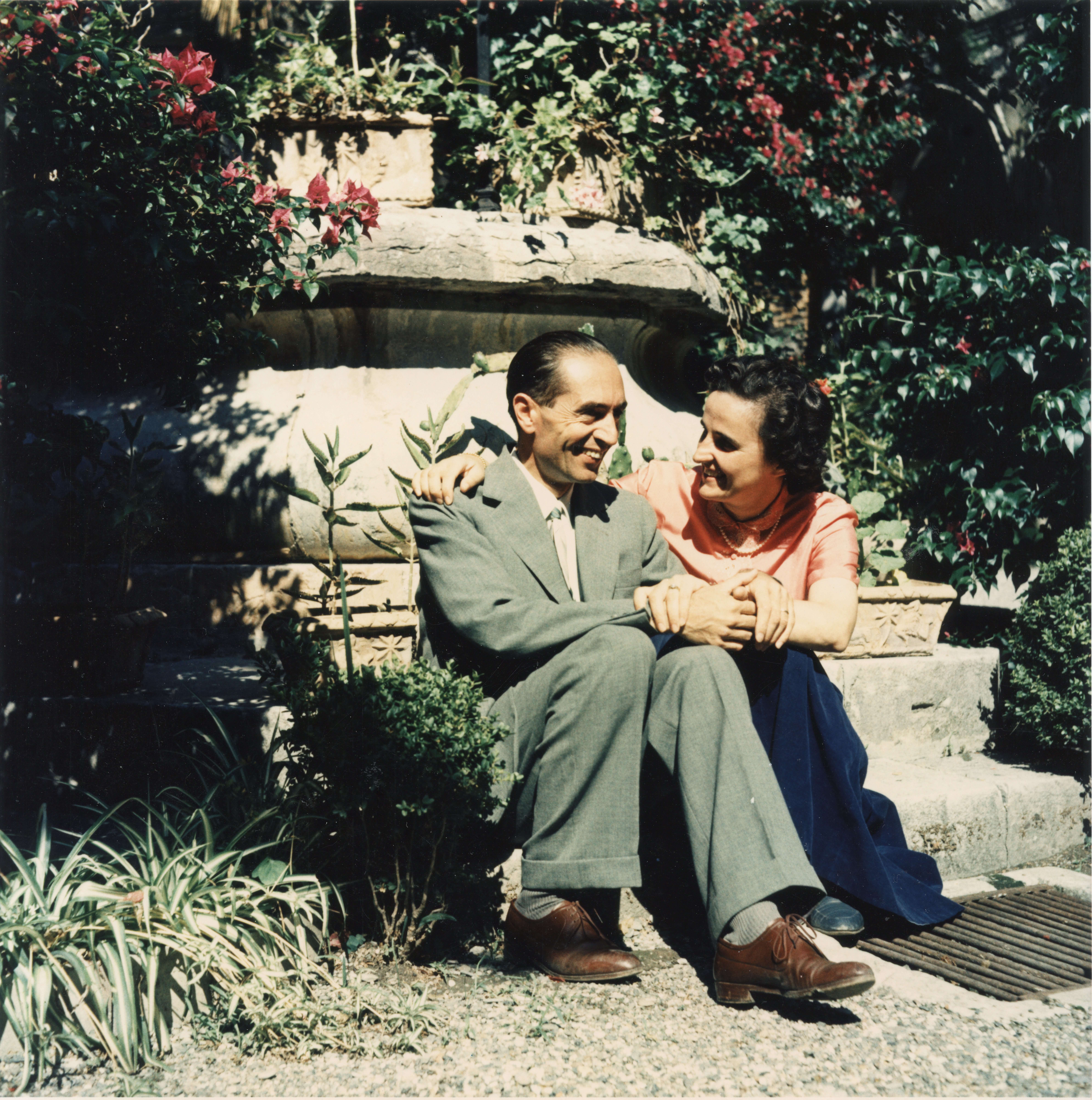Meditate upon the risen Christ in Heaven with St. Ignatius of Loyola! This gorgeous excerpt comes from his Spiritual Exercises, one of the greatest guides to prayer in Church history.
Preparatory Prayer
First prelude. Represent to yourself Our Lord seated on His throne at the right hand of His Father; beside Him the Blessed Virgin; around the throne the angels and the elect.
Second prelude. Beg for an ardent desire of heaven, and the courage to suffer on earth with Jesus Christ, that you may one day reign with Him in eternity.
First Point
Jesus Christ in Heaven suffers no more
Consider that Our Lord in heaven is free from all the trials and pains that He experienced in His mortal life. His body, since His resurrection, is withdrawn from the empire of weakness and death. His soul, inundated with the delights of the divinity united to Him, is henceforward a stranger to sadness and desolation. In heaven, the Christian, like his Divine Head, will be forever freed from all bodily pains and from all afflictions of the soul.
1. In heaven there are no more infirmities. The body, clothed with the glory of Jesus Christ, will be raised, like that of the Saviour, to a state of impassibility: “Who will reform the body of our lowness, made like to the body of His glory” (Phil. 3:21). In this abode of perfect beatitude the blessed no longer know what it is to suffer and die: “And death shall be no more” (Apoc. 21:4).
2. In heaven there is no more grief or sorrow. “Nor mourning, nor crying, nor sorrow shall be any more” (Apoc. 21:4). Here below, what is life but one long unceasing affliction? In heaven, all tears are dried: “God shall wipe away all tears from their eyes” (Apoc. 7:17). They remember past sorrows, but this memory is for the elect a part of their beatitude. Each one of them, like the prophet, applauds his past trials. Each one of them says, Happy tribulations, which are now repaid by an immense weight of glory: “We have rejoiced for the days in which Thou hast humbled us; for the years in which we have seen evils” (Ps. 89:15).
3. In heaven there are no more separations. Here below, to poison the sweets of friendship, this thought alone suffices: “How long will the society of these friends, of these relatives so tenderly loved, continue?” But once in the bosom of God, the elect meet to part no more. What joy for a Christian family to meet again, after the long and sad separation of the grave! What joy to be able to say with confidence, “We are again united, and it is for eternity!”
4. In heaven there are no more temptations. Here on earth is for the Christian a struggle of every day and every moment; and in this struggle a continual danger of losing the grace of God, his soul, and eternity. Hence the groans of the saints, who never cease crying out with the prophet, “Woe is me, that my sojourning is prolonged” (Ps. 119:5); or with the Apostle, “Unhappy man that I am, who shall deliver me from the body of this death?” (Rom. 7:24). The lament of the exile is never heard in this country. There is no longer anything to fear from the world, which has no more illusions; nor from hell, which is conquered; nor from our own hearts, which only live for Divine love. There everything says, as did formerly holy King David, “He hath delivered my soul from death, my eyes from tears, my feet from falling. I will please the Lord in the land of the living” (Ps. 114:89).
5. In heaven, above all, there is no more sin. Recall what you have meditated on the malice of sin. It is the supreme evil, the one only evil of time and eternity; the sole evil of the creature, the great evil done against God. Banished into hell, sin cannot penetrate into the kingdom of charity. Oh, the happiness of that day, when, entering into heaven, the elect shall say, My God is now mine, and I am His! “My beloved to me and I to Him” (Cant. 2:16). I am united to Him forever, and sin can never separate me from Him: “I held Him, and will not let Him go” (Cant. 3:4).
Second Point
Jesus Christ in Heaven has no longer anything to desire
What Our Lord asked of His Father is accomplished: “And now glorify Thou Me, O Father, with Thyself, with the glory which I had, before the world was, with Thee” ( John 17:5). The holy humanity of Our Saviour is glorified and His glory is this blessed possession of God, in which His soul loses itself in the plenitude of all good. To possess God and in God to possess all good—such is also the bliss that awaits us in heaven; a sovereign and universal beatitude, which will be the full satisfaction of the entire man.
1. Beatitude of the senses. The body raised up at the last day and united to the soul, whose servant it was, will partake of its felicity. The ear will not weary of hearing the sacred songs of the elect; the eye will never tire in contemplating the light of Paradise, the splendor of the glorified saints, the sweet majesty of Mary on her throne, the luster of the adorable humanity of Jesus Christ—all the senses will be inebriated with these pure and spiritual pleasures, which appear to belong only to the celestial intelligences: “They shall be inebriated with the plenty of Thy house; and Thou shalt make them drink of the torrent of Thy pleasure” (Ps. 35:9).
2. Beatitude of memory. With what joy will the saints recall the graces they have received from God, the virtues they practiced on earth! How will a martyr congratulate himself on his sufferings, an apostle on his labors, a confessor on his sacrifices! How each one of the elect will return thanks to God for His mercies! With what an effusion of gratitude and happiness will they say to themselves, “On such a day God inspired me to serve Him alone; and it is this inspiration that has led me to heaven: on such a day God preserved me from this temptation, withdrew me from this occasion or habit of sin! What care His providence took for my salvation! And what had I done to merit that He should save me in preference to so many who are lost forever?”
3. Beatitude of the intellect. Closely united to God, the intelligence of the elect sees all truth in Him as in a mirror. Suppose the rudest man in the world, the most ignorant of science, enters heaven; that moment his soul is inundated with lights so vivid that before them the lights of the greatest geniuses are but darkness: it sees God without veil and face to face; and in God sees all things—the wonderful laws that govern the world; the mysteries of providence; the secrets of the redemption of men and of the predestination of the elect; the attributes of the Divine nature—wisdom, power, goodness, immensity, eternity; the Three Persons of the Trinity, with their relations and ineffable operation. The soul sees God, and this sight, in a manner, transforms it into God Himself, according to the words of St. John: “We know that when He shall appear, we shall be like to Him; because we shall see Him as He is” (1 John 3:2).
4. Beatitude of the will. This beatitude will be to love and possess God. To love God is the true object of our heart. But here below how weak is this love, how it is mingled with lowness and imperfections, how subject it is to change and inconstancy! In heaven, scarcely does God show Himself to the soul before He subjugates it and ravishes it forever—sovereign love that rules all the affections; love so pure that the blessed forget themselves to be lost in God; love so ardent and so strong that it absorbs and exhausts all the power of loving; love so ecstatic that the soul goes out of itself and passes entirely into God to be consummated in unity with Him. It is the expression of Our Lord: “The glory which Thou hast given Me, I have given to them, that they may be one, as We also are one” (John 17:22).
“O God! When shall it be given to me to see the glory of Thy kingdom? When will the day arrive that Thou shalt be all in all to me? When shall I be with Thee in the mansions which Thou hast eternally prepared for Thy beloved?” (Imit. of Christ, 3.48).
Third Point
Jesus Christ in Heaven has no change to dread
The reign of Jesus Christ in heaven is safe from all vicissitudes: it will have no end. He will reign eternally at the right hand of His Father, always triumphant, always sovereign, always the object of love to the saints and angels, as of the sweetest approbation of His Father: Cujus regni non erit finis, “Of whose kingdom there shall be no end.” The beatitude of the saints is immutable, like that of the Son of God. It is the inseparable condition of worldly goods to be accompanied by fear or distaste, sometimes by both at once: fear, because each moment they may escape; distaste, because we cannot long enjoy them without recognizing and feeling their vanity. It is not so with the goods of eternity. These are unchangeable and therefore have no end or diminution. Add ages to ages; multiply them equal to the sand of the ocean or the stars of heaven; exhaust all the numbers, if you can, beyond what the human intelligence can conceive, and for the elect there will be still the same eternity of happiness. They are immutable, and this immutability excludes weariness and disgust. The life of an elect soul is one succession, without end, of desires ever arising and ever satisfied, but desires without trouble, satiety or lassitude. The elect will always see God, love God, possess God and always will wish to see Him, love Him and possess Him still more. This beatitude is the end destined for all; God has given us time only in order to merit it, being and life only to possess it. Reflect seriously on this great truth, and ask yourself these three questions at the foot of the crucifix. What have I done hitherto for heaven? What ought I to do for heaven? What shall I do henceforward for heaven?
Colloquies with the Blessed Virgin and Our Lord glorified in heaven.
Anima Christi. Pater Noster. Ave Maria.
ooo
This article is taken from a chapter in The Spiritual Exercises of Saint Ignatius by St. Ignatius of Loyola which is available from TAN Books.








